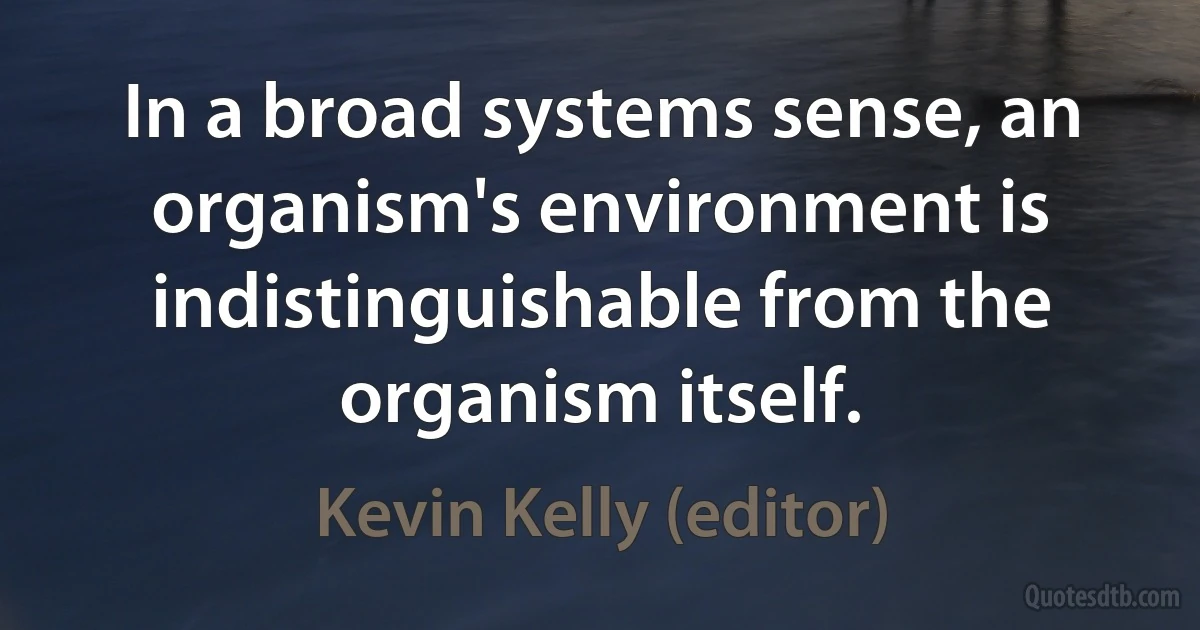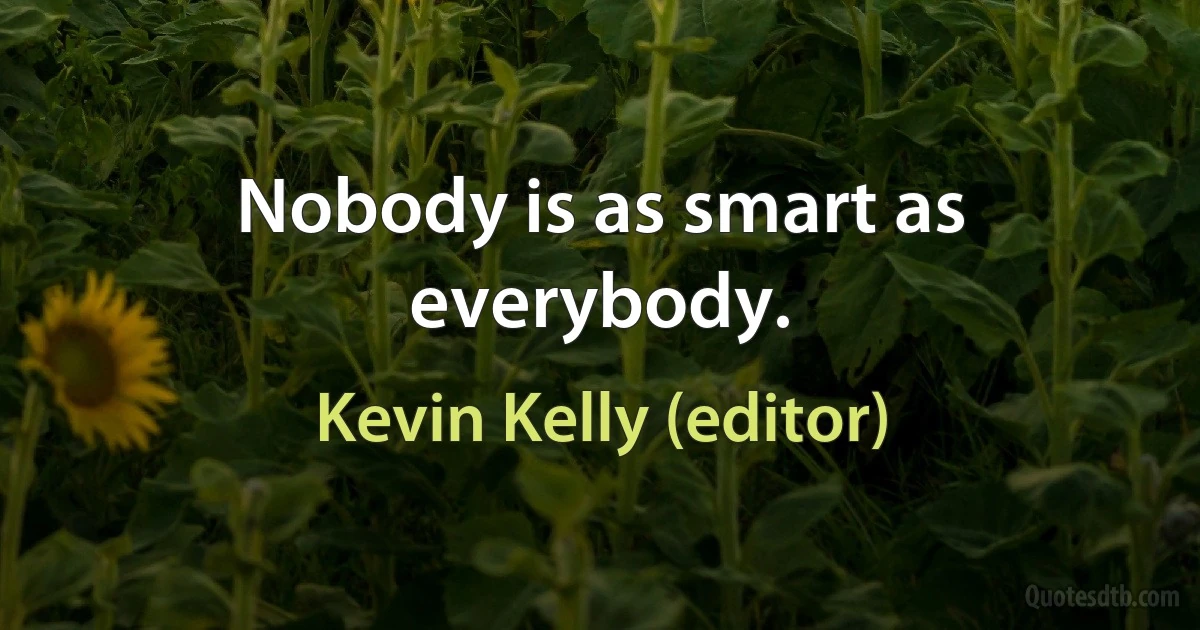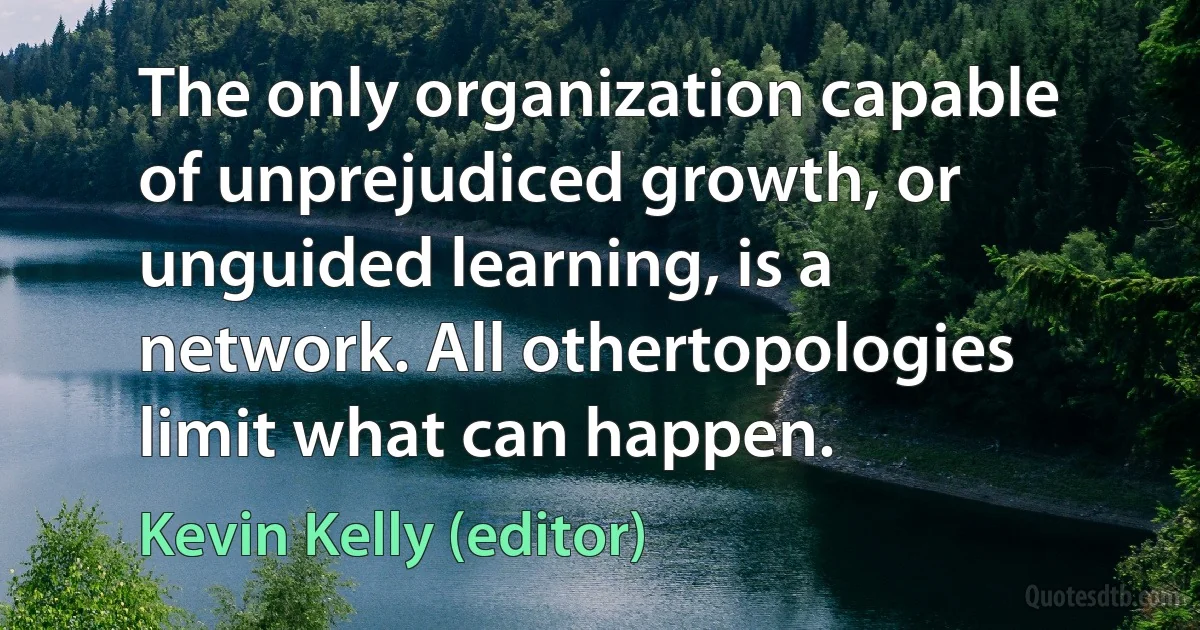Kevin Kelly (editor) quotes - page 8
We're just at the beginning of the beginning of all these kind of changes. There's a sense that all the big things have happened, but relatively speaking, nothing big has happened yet. In 20 years from now we'll look back and say, 'Well, nothing really happened in the last 20 years.'

Kevin Kelly (editor)
Our mission as humans is not only to discover our fullest selves in the technium, and to find full contentment, but to expand the possibilities for others. Greater technology will selfishly unleash our talents, but it will also unselfishly unleash others: our children, and all children to come.

Kevin Kelly (editor)
At the core of the notion of a superhuman intelligence - particularly the view that this intelligence will keep improving itself - is the essential belief that intelligence has an infinite scale. I find no evidence for this. Again, mistaking intelligence as a single dimension helps this belief, but we should understand it as a belief. There is no other physical dimension in the universe that is infinite, as far as science knows so far. Temperature is not infinite - there is finite cold and finite heat. There is finite space and time. Finite speed. Perhaps the mathematical number line is infinite, but all other physical attributes are finite.It stands to reason that reason itself is finite, and not infinite.

Kevin Kelly (editor)



